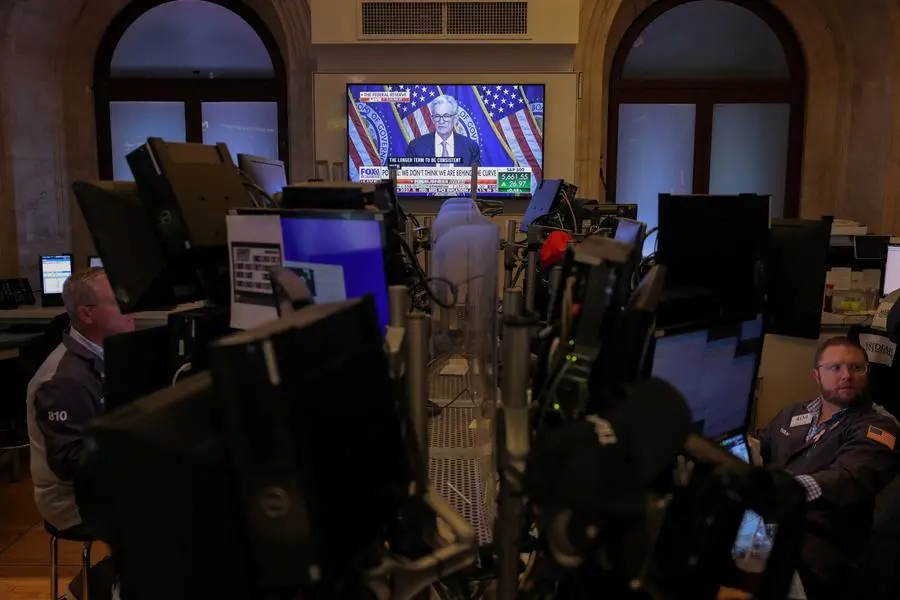PHOTO
LONDON, SYDNEY - Global stocks traded sideways on Friday as a stunning rally in Chinese shares paused and investors held back from placing more bets ahead of a much-anticipated update on fiscal stimulus from Beijing this weekend.
European stock markets were steady, Wall Street futures were also flat and MSCI's broadest index of Asia-Pacific shares outside Japan ended the week with a loss after four straight weeks of gains.
The global stock index is near record highs after a burst of late summer volatility sparked by fears of a U.S. recession was eased by the Federal Reserve's first rate cut of this cycle, where it cut borrowing costs by a jumbo 50 basis points.
That first round of U.S. easing opened the door for China to bring in monetary support measures without creating extra pressure on the weakened renminbi.
Beijing's finance ministry has signalled it will announce a significant fiscal stimulus at a press conference on Saturday.
Ting Lu, chief China economist at Nomura, said markets were "laser-focused" on the outcome.
But, Lu added, the finance ministry might not be able to detail plans for spending and bond issuance that would require separate approval from the National People’s Congress, Beijing's top government body.
Beijing's next moves, which investors worldwide are counting on to boost activity everywhere from Australia's iron ore mines to luxury goods shops in London and Paris, could depend on whether the Fed carries on with rate cuts.
Data showed core U.S. consumer prices rose by a higher-than-expected 0.3% in September from August, signalling the U.S. central bank might have applied a larger-than-necessary dose of relief to an economy that is not ailing yet.
Money markets still put 80% odds on a 25 basis point rate reduction on Nov. 7 however, after data on Thursday showed weekly jobless claims had surged and the severe hurricanes wreaking devastation across the U.S. also threatened the economy.
OIL VOLATILE
The U.S. dollar, steady on Friday, hit two-month highs overnight as money market traders dropped all their bets for another half-point rate cut. "A significant portion of the recent gains in equities can be attributed to the dual tailwinds of lower interest rates and economic stimulus from China," Lombard Odier Investment Managers head of macro Florian Ielpo said.
"However, with inflation proving stickier than expected, (U.S.) interest rates might face temporary upward pressure."
The yield on the interest rate-sensitive two-year U.S.Treasury has risen for two consecutive weeks as the price of the government debt instrument fell, although it edged 3 bps lower on Friday to 3.7943%.
The benchmark 10-year yield fell 2 bps to 4.073% but remains far above its level of about 3.6% in early September.
In Europe on Friday, the Stoxx 600 share index traded flat, still near its 52-week high as investors focused more on prospective European Central Bank monetary easing than an economic slowdown across the currency bloc.
With the ECB widely expected to cut its deposit rate again next week for the second month in a row as inflation has stalled, Germany's 10-year Bund, steady at 2.26% on Friday, has dropped far below the 3.5% euro zone deposit rate.
Elsewhere in markets, Brent crude oil dropped 1.2% to 78.45 a barrel,, having jumped about 4% overnight as Hurricane Milton drove a spike in U.S. fuel use and Middle East supply risks remained high. Gold was last up 0.6% at $2,644.69 an ounce.
(Reporting by Naomi Rovnick and Stella Qiu; Editing by Sam Holmes and Alison Williams)




















